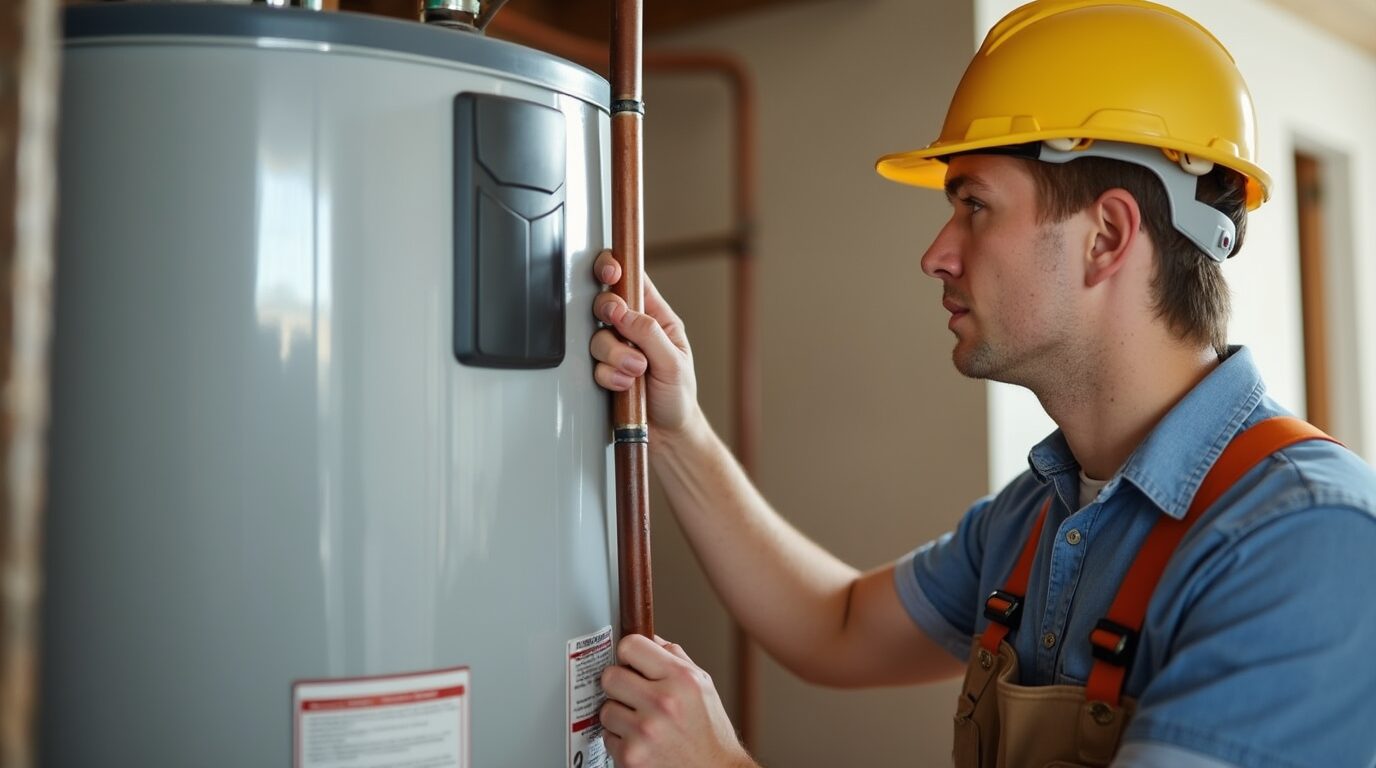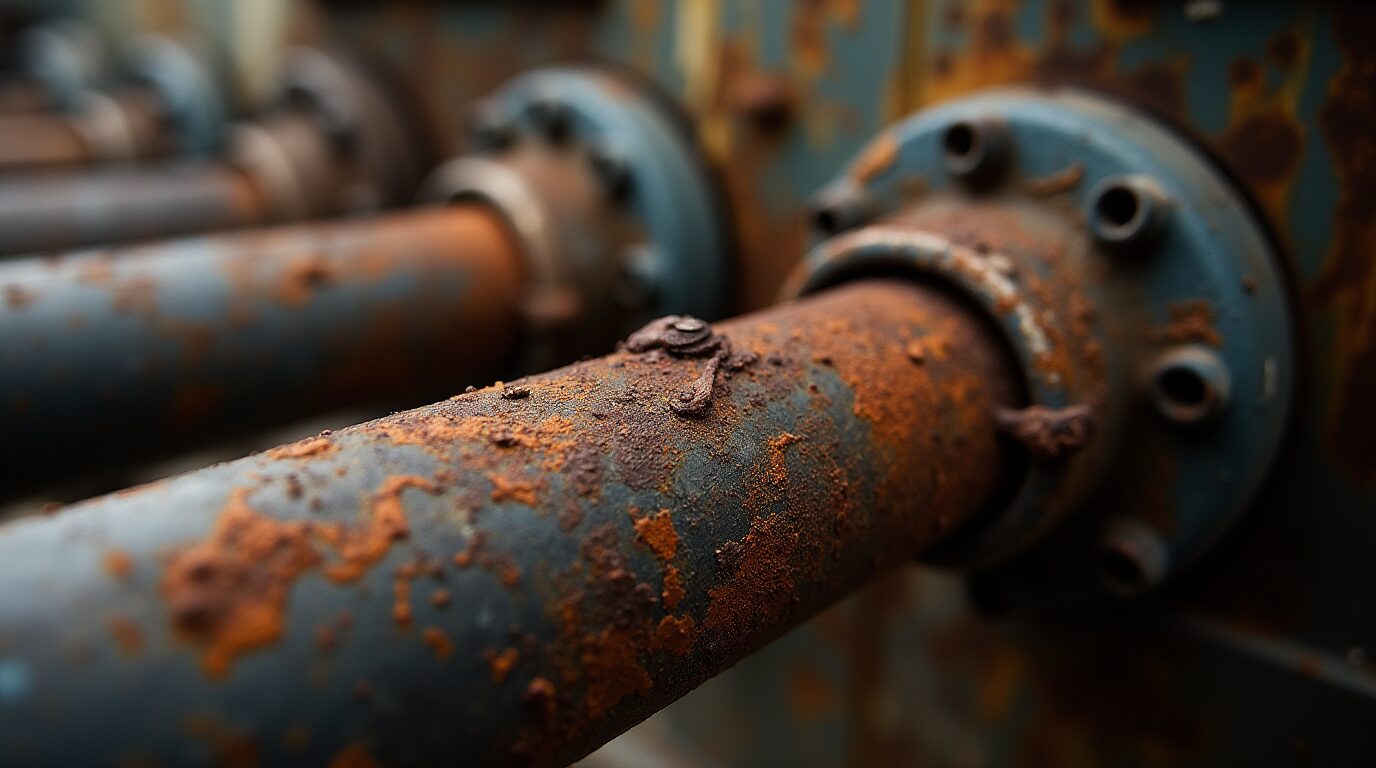
Signs Your Water Heater Is Leaking And Needs Immediate Attention
A leaking water heater may seem like a minor inconvenience, but it can quickly become a major problem if ignored. Small leaks often lead to extensive water damage, increased energy bills, and even potential health risks due to mould growth.
Whether your water heater is located in a utility room, basement, or closet, spotting the signs of a leak early can save you thousands of dollars in repairs and replacements.
Let’s get right into it!
Why Leaks From Water Heaters Should Not Be Ignored
Risks Of Water Damage And Mould
A leaking water heater can release large volumes of water into surrounding areas, especially if left unnoticed over time. This moisture can seep into walls, flooring, and insulation, creating the perfect conditions for mould. According to Health Canada, indoor mould exposure can trigger respiratory issues, asthma, and allergic reactions, especially in children and seniors.
Impact On Water Heating Efficiency And Energy Costs
When your water heater leaks, it often has to work harder to maintain the desired water temperature. This additional strain leads to increased energy consumption and higher utility bills. A slow leak may also indicate that the tank is struggling to retain hot water, resulting in longer wait times and colder showers.
Potential Safety Hazards From Electric And Gas Units
Leaking water can reach electrical components or gas lines, posing serious safety hazards. In electric models, water can cause shorts or fires. Gas units can develop issues with ignition systems or pilot lights. If you smell gas or suspect electrical damage, evacuate and contact emergency services immediately.
Common Signs Of A Water Heater Leak
Visible Pooling Around The Base
The most obvious sign of a leak is water collecting at the base of the tank. Even small puddles should not be ignored, as they can indicate ongoing internal corrosion or a loose valve. Always inspect the base of the unit if you notice water in the surrounding area.
Rust Or Corrosion On The Tank Or Pipes
Rust spots on the tank or connected pipes are a clear sign that the metal is deteriorating. Corrosion can lead to pinhole leaks and, eventually, tank failure. You may also notice discoloured water, which often points to rust inside the tank.
Dripping Sounds Or Reduced Hot Water Pressure
If you hear dripping when the heater is not actively heating water, it could mean there is a leak in a valve or pipe joint. A sudden drop in hot water pressure can also signal a hidden leak within the system, especially if accompanied by unusual sounds or higher energy usage.
Diagnosing The Source Of The Leak
Temperature And Pressure Relief Valve Leaks
The temperature and pressure relief valve (T&P valve) is designed to release excess pressure from the tank. If this valve is faulty or improperly installed, it can begin to drip or spray water. A leaking T&P valve should be replaced immediately to prevent tank rupture.
Tank Cracks And Internal Corrosion
Over time, sediment can build up at the bottom of the tank, causing the metal to overheat and weaken. This can lead to microscopic cracks that grow larger under pressure. Once the tank itself begins to leak, repair is usually not possible—replacement is the only option.
Faulty Inlet And Outlet Connections
Leaks near the top of the heater are often caused by loose or corroded inlet and outlet connections. These pipes deliver cold water into the tank and carry hot water out. Tightening fittings or replacing deteriorated components can often resolve the issue if caught early.
Signs Your Water Heater Is Leaking And Needs Immediate Attention: What To Do When A Leak Is Detected
Turning Off Water And Power Immediately
If you suspect a leak, shut off the cold water supply to the unit using the valve located above the heater. Then, turn off the power source—switch off the breaker for electric units or turn the gas control valve to the “off” position for gas heaters. This prevents further water accumulation and protects your home from safety hazards.
Cleaning Up Standing Water To Prevent Damage
Quickly soak up or vacuum any standing water to avoid long-term damage to floors, walls, and nearby furniture. Use fans and dehumidifiers to help dry out the space and prevent mould growth. Be cautious when working near electrical components.
Contacting A Licensed Technician For Repairs
Once the area is secure, contact a licensed plumber or water heater technician. They can inspect the unit, determine the cause of the leak, and recommend repair or replacement. Delaying service can lead to worsening damage and higher repair costs.
When Repair Is Not Enough: Replacing Your Water Heater
Lifespan Of A Typical Water Heater Unit
Most traditional tank water heaters last between 8 to 12 years. If your unit is leaking and nearing the end of its expected lifespan, replacing it is often more cost-effective than repairing it. Newer models also offer better energy efficiency and updated safety features.
Choosing Between Tank And Tankless Options
Homeowners can choose between a standard tank unit or a tankless model. Tankless water heaters provide hot water on demand and are more energy-efficient but come with a higher upfront cost. Tank units are more affordable initially and are easier to install in most existing setups.
Factors To Consider When Replacing A Unit
Before replacing your heater, consider the size of your household, hot water usage, energy preferences, and available space. You may also qualify for government rebates if you choose an energy-efficient model approved under Canada’s ENERGY STAR® program.
FAQ
How Can I Tell If My Water Heater Is Leaking Or Just Sweating?
Condensation on the outside of a water heater can look like a leak but usually dries quickly. If you notice persistent water pooling at the base or dripping from a valve, it is likely a leak that requires attention.
Is It Safe To Keep Using A Leaking Water Heater?
No, using a leaking water heater can cause further damage to your home and pose a safety risk. Shut off the power and water supply and contact a professional right away.
What Causes A Water Heater To Leak Suddenly?
Sudden leaks can occur due to a ruptured tank, a failing pressure relief valve, or a loose pipe connection. Internal corrosion and sediment buildup are often behind these failures.
How Much Water Is Too Much Around The Base?
Any amount of water pooling around the heater should be treated as serious. Even a small puddle can indicate a developing issue that may lead to extensive damage if left unresolved.
Can I Fix A Water Heater Leak Myself?
Some minor leaks, such as those from pipe fittings, can be tightened or replaced. However, tank leaks or faulty valves should be addressed by a licensed technician for safety and warranty purposes.
How Long Should A Water Heater Last?
Most tank water heaters last 8 to 12 years, while tankless models can last up to 20 years with proper maintenance. Regular flushing and inspections can extend a unit’s lifespan.
What Is The Cost Of Replacing A Leaking Unit?
In Canada, replacing a standard tank water heater typically costs between $1,000 and $2,000, depending on the unit and installation complexity. Tankless systems may cost more but offer long-term energy savings.
Should I Choose A Tankless Water Heater?
Tankless systems are more energy-efficient and provide endless hot water. They are ideal for households with high water usage, though they do have higher initial costs and require proper sizing.
Does Home Insurance Cover Water Heater Leaks?
Many policies cover water damage from a sudden and accidental leak, but not from gradual wear or lack of maintenance. Check your specific policy for details and exclusions.
How Do I Prevent Future Water Heater Leaks?
Flush the tank annually to remove sediment, inspect the anode rod regularly, and schedule professional maintenance to detect early signs of wear or corrosion.
Conclusion
A leaking water heater should never be ignored. From minor drips to major tank failures, leaks can cause extensive property damage and increase your utility bills.
By recognizing early warning signs and taking prompt action, you can protect your home, health, and wallet. Whether repairing or replacing your water heater, always consult a licensed professional to ensure your system operates safely and efficiently.
If you have any questions about our article, “Signs Your Water Heater Is Leaking And Needs Immediate Attention” or need water damage restoration services contact us at 1-833-WE-DRY-IT any time 24/7/365 all the time or connect with us on social media, we’re there when you need us!


